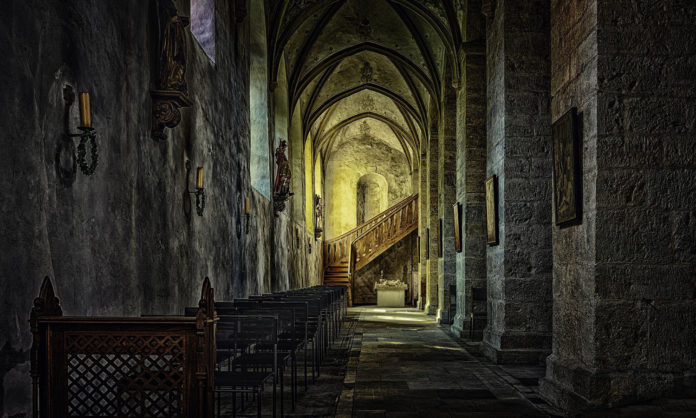In a post on CrimeReads, Eddie Robson examines the intersection between science fiction, crime, and gothic novels. In fact, Robson says that both SF and crime rose from the gothic novel. “We tend to think of SF as being a future-facing genre, which seems at odds with Gothic, with its sense of decay and anxieties about the past,” he says. “Yet the root of SF is generally agreed to be one of the great Gothic novels, Mary Shelley’s Frankenstein—a text that imagines what science might achieve, and the ramifications if that came to pass.”
Some describe Frankenstein as a crime novel. “Victor Frankenstein spends a chunk of the novel as detective, tracking his creation,” Robson explains. “And other key texts in the development of the detective novel as we understand it today—the stories of Edgar Allen Poe, The Woman in White, The Hound of the Baskervilles—are also Gothic.”
Even Dracula has elements of the detective novel, with the protagonists on the vampire’s trail, as well as science fiction, as Dracula’s old world contrasts with the rational, technological world of his hunters. “The police procedural frequently emphasizes psychology and forensic science as tools to solve mysteries and restore order, while SF is fueled by the possibilities of technology, whether celebrating or warning against it,” Robson writes.
Gothic fiction shares elements with noir, such as fatalism, paranoia, claustrophobia, and fear of the past. These moods often cross over into crime/SF, particularly in the work of Philip K. Dick, who mines uncertainty, ambiguity, and technological falsity in his novels. “Technology’s increasing ability to create artificial things not only returns us to the territory of Frankenstein, it also brings back the essential Gothic quality of the uncanny,” Robson says. “This became a familiar mode of SF in the wake of works like Neuromancer and Blade Runner—both of which, incidentally, also draw heavily on crime tropes.”
Robson also notes that a detective is an ideal character for an SF novel, because he has a reason to investigate your future world, ask questions, and convey necessary worldbuilding information to your readers. In Robson’s latest novel, his main character becomes a murder suspect when she can’t account for her whereabouts in a future surveillance-heavy worlds. “And so Lydia is abruptly shifted from a science-fiction world where things make sense to her, to a Gothic world where she doesn’t know what’s going on and nothing makes sense,” Robson says. “While I revel in switching between genres, the experience is a lot less comfortable for my protagonist, who probably wishes she was in one of those novels by writers who are better at staying on brand.”












